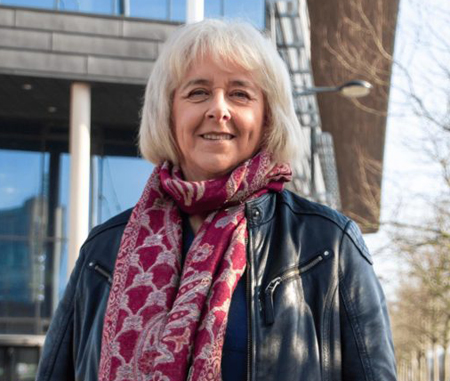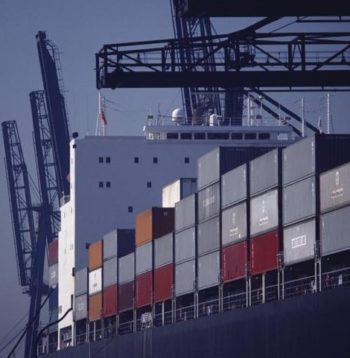With less than a week to go until the Environment Bill Committee is due to report to parliament with its amendments to the bill, letsrecycle.com gives a breakdown of some of the amendments put forward and discussions which have taken place so far.
The House of Commons Environment Bill Committee met again earlier this month, (see letsrecycle.com story) more than seven months after the coronavirus pandemic forced its work to be postponed in March.
The committee has been meeting four times a week since then, twice a day every Tuesday and Thursday, and aims to report back to parliament on 1 December.
It will go before MPs at the ‘report stage’ giving them an opportunity to consider further amendments on the floor of the House of Commons.
The bill will then progress to a third reading in the Commons before proceeding to the House of Lords, where further amendments can be tabled and discussed before being given royal assent.
MPs
Sir Roger Gale (Con) and Sir George Howarth (Lab) have been named as chairs and 10 of the 17 members are from the Conservative Party. The SNP has two members while Labour has five.
The bulk of the discussions surrounding waste legislation in the bill took place between three sittings on the 10 and 11 of November, in the 13th, 14th, and 15th sittings of the committees.
Reuse
In total, two amendments were formally tabled and voted on the 13th sitting by opposition MPs and were rejected.

Ruth Jones, the Labour MP for Newport West, tabled all the rejected amendments on behalf of the opposition
Ruth Jones, the Labour MP for Newport West, tabled an amendment looking to add targets for waste prevention and reuse into extended producer responsibility legislation.
This was welcomed by her fellow opposition MPs including the shadow recycling minister Alan Whitehead, who said “the best way to handle a waste stream is to make sure that there is less waste in it in the first place”.
However the recycling minister Pow said she “does not believe we need the amendment”, stating that the power, as drafted, “already allows us to place obligations, including targets, on producers to prevent waste or to reduce the amount of a product or material that becomes waste”.
The amendment was put forward and rejected by 9 Noes to 4 Ayes.
Social
A further amendment was tabled by the opposition looking to ensure that “social costs incurred throughout the lifecycle of products or materials” are incorporated into producer responsibility for disposal costs.
Ms Jones said: “Thinking through this amendment and the background to it reminded me of recent events in Sri Lanka… We need to ensure that the life journey of the materials used is followed through by their producers from start to finish, focusing not just on the waste element but on the production and useful lifetime element of these issues. I urge the minister to think about the social costs of the issues we are discussing, not just the environmental costs.”
Fleur Anderson, Labour MP for Putney, added that the amendment would help the bill go “just a little further”.
However, this was voted down by the same score, with Mrs Pow saying: “At the end of the day, we want less waste landfilled or incinerated, less litter and a decrease in the use of virgin raw materials. These outcomes bring wider social benefits”.
Approved
Other minor amendments made by Mrs Pow were agreed, such as leaving out “the National Assembly for Wales” and inserting “Senedd Cymru”.
14th sitting
During the 14th sitting on 12 November, five amendments were voted on and rejected, while a number of others were put forward but later withdrawn around resource efficiency.
Ruth Jones tabled an amendment on behalf of the opposition on the meaning of resource efficiency, looking to add “taking into account social dimensions such as human rights, public health and fair working conditions” to the current definition as defined below:
“Resource efficiency requirements, in relation to a product, means requirements which are relevant to the product’s impact on the natural environment”.
Impact
Mrs Jones said this will help the bill look at “ the wider impact of how things are done, so it is not just a case of looking solely at what is produced and manufactured and its impact on the environment.”
“The amendment looks like a cocktail of impractical virtue signalling”
Mrs Pow said while she “shared her concerns”, the primary focus of the bill “is improving the natural environment.
Richard Graham, the Conservative MP for Gloucester, said the amendment “looks like a cocktail of impractical virtue signalling”.
The amendment was rejected by 7 noes to 4 ayes.
Definition
Other changes to this definition were also rejected, including adding in “the techniques and working conditions used in its manufacture and sourcing of resources”, “the resources consumed during its production or use” and “the pollutants released or emitted at any stage”.
Charges
A further amendment was tabled by the opposition on this day looking to add ‘are made of plastic or any other single use material’ to the part of the bill outlining what single use plastic items should be charged.
Mrs Jones said: “We need to look at changing hearts and minds, as well as legislation”.
The current wording says charges may specify only items which— (a) are single use items, (b) are made wholly or partly of plastic, and (c) are supplied in connection with goods or services.
Mrs Pow in response said: “I fear that the amendment has not taken enough account of the bespoke issue of plastics or of how much of the bill is aimed at tackling our single-use culture. Applying charges to single-use plastic items will be an effective way of reducing the impact on the natural world”.
Dr Whitehead responded by saying the committee needs “to make a decision on what this is about. Is it about single-use items, or is it about plastic items? In this instance, the two have been elided for the purpose of a concentration on plastic single-use items”.
Mrs Pow Reiterated that “the ability to place a charge on single-use plastic items will be a powerful tool in our efforts to tackle the issues arising from our use of single-use plastic”.
The amendment was rejected by the same score.
Delays
The committee also raised concerns about potential delays to a deposit return scheme, and looked to table amendments which says the secretary of state ‘may’ implement this
However, Mrs Pow said questions about the timeline “fired her up”, as “a great deal of work must be done to ensure” all legislation fits together.
Exports
Only one amendment was formally voted on in the 15th sitting on 12 November, which was put forward and rejected with 5 ayes and 7 noes.
This was tabled by Mrs Jones on behalf of the opposition, requesting that a line be added in stating that the secretary of state “must by regulations make provision to prohibit the exportation of waste consisting wholly or mostly of plastic from no later than March 2025”.
Mrs Jones said that she believed the UK has had a “lost decade” under the Tories and Lib Dems when it came to protecting the environment.
She added: “I have to say that this country has struggled to fulfil its international obligations in this area, although the Environment Agency in England recently tried to increase its preventive work, and I acknowledge those small, tentative steps forward in spite of the cuts to resources it has suffered over the last 10 years.”
Speaking in favour of the amendment, Dr Whitehead said: “That would give us the space to start getting our act together in this country and ensuring that facilities are available to recycle properly. We really cannot accept, and I do not think any of us would want to accept, that exporting waste should in the future be seen as a safety valve for our own inadequacies.”
Mrs Pow spoke against making the amendment, stating that the clause already provided powers to make regulations on a “wide range of matters” to do with the import and export of waste, which includes prohibiting and restricting its export.
The post Environment Bill committee nears report stage appeared first on letsrecycle.com.
Source: letsrecycle.com Waste Managment





